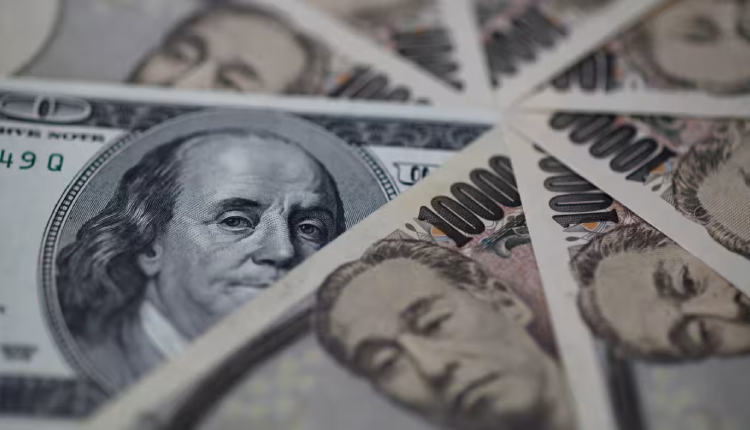The Japanese yen surged on Monday, reversing earlier losses, as geopolitical tensions in the Middle East prompted investors to seek safe-haven assets.
Tel Aviv is currently assessing its response to a deadly rocket strike in the Israeli-occupied Golan Heights, an incident attributed to Lebanese armed group Hezbollah.
The market’s reaction underscores the fragility of investor sentiment, particularly following last week’s rapid sell-off in tech shares, which contributed to the yen’s recent rally against the dollar.
The dollar, which initially gained ground during Asian trading hours, later dipped to 153.51 yen—a decline of 0.17 per cent—as investors closely monitored developments in the Middle East.
Last Thursday, the dollar had touched a low of 151.945 yen, marking its weakest level since early May. The overall weekly performance was lackluster, with the dollar ending down 2.4 per cent, its worst weekly showing since late April.
Shinichiro Kadota, a currency and rates strategist at Barclays in Tokyo, noted that the dollar-yen rally appeared to stall following news of the rocket strike in Israel.
Kadota emphasised that sentiment remains delicate and highlighted the pivotal role of US equities in shaping market movements.
This week’s US earnings calendar features heavyweight companies such as Amazon, Apple, Meta, and Microsoft, adding further complexity to currency trading dynamics.
Additionally, central bank decisions from the Bank of Japan (BOJ) and the Federal Reserve are scheduled for Wednesday, followed by the Bank of England’s (BoE) policy announcement on Thursday.
Speculation has grown that the BOJ may raise interest rates while significantly reducing its monthly bond purchases.
The BOJ had previously promised to outline its quantitative tightening (QT) plans during this meeting, following discussions last month.
Meanwhile, the Federal Reserve is widely expected to leave rates unchanged this week, with a potential quarter-point rate cut anticipated at the subsequent meeting in September.
The dollar index, which measures the currency against a basket of major peers, declined 0.19 per cent to 104.17. The euro eased against the yen, while sterling remained steady near its recent highs.
Sterling rose by 0.14 per cent to $1.2885. The likelihood of a first rate cut by the BoE on Thursday is uncertain.
The Australian dollar also increased by 0.24 per cent to $0.6563, rebounding from a low of $0.65105 on Friday.
Bitcoin surged by 2.6 per cent to $69,212, boosted by favourable remarks from Donald Trump at a bitcoin conference, emphasising the importance of US dominance in the sector to counter China.
Attribution: Reuters


